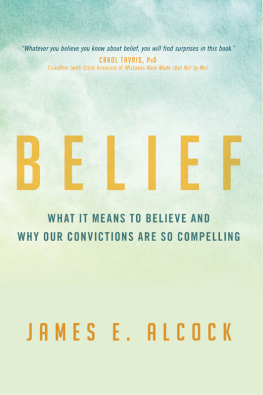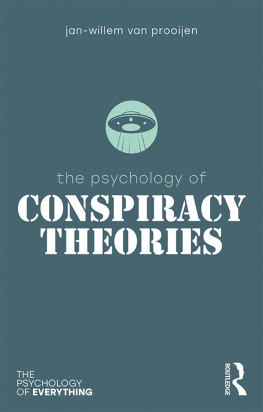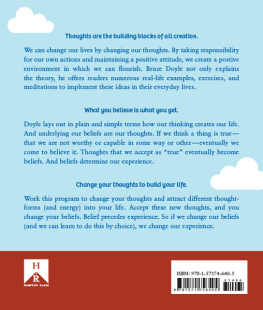ROUTLEDGE LIBRARY EDITIONS: SOCIAL THEORY
Volume 14
CONCEPTS AND SOCIETY
CONCEPTS AND SOCIETY
I. C. JARVIE
First published in 1972
This edition first published in 2015
by Routledge
2 Park Square, Milton Park, Abingdon, Oxon, OX14 4RN
and by Routledge
711 Third Avenue, New York, NY 10017
Routledge is an imprint of the Taylor & Francis Group, an informa business
1972 I. C. Jarvie
All rights reserved. No part of this book may be reprinted or reproduced or utilised in any form or by any electronic, mechanical, or other means, now known or hereafter invented, including photocopying and recording, or in any information storage or retrieval system, without permission in writing from the publishers.
Trademark notice: Product or corporate names may be trademarks or registered trademarks, and are used only for identification and explanation without intent to infringe.
British Library Cataloguing in Publication Data
A catalogue record for this book is available from the British Library
ISBN: 978-0-415-72731-0 (Set)
eISBN: 978-1-315-76997-4 (Set)
ISBN: 978-1-138-78240-2 (Volume 14)
eISBN: 978-1-315-76368-2 (Volume 14)
Publishers Note
The publisher has gone to great lengths to ensure the quality of this reprint but points out that some imperfections in the original copies may be apparent.
Disclaimer
The publisher has made every effort to trace copyright holders and would welcome correspondence from those they have been unable to trace.
Concepts and society
I. C. Jarvie
First published 1972
by Routledge & Kegan Paul Ltd,
Broadway House, 6874 Carter Lane,
London EC4V 5EL and
9 Park Street,
Boston, Mass. 02108, U.S.A.
Printed in Great Britain
at the St Anns Press, Park Road,
Altrincham, Cheshire WA14 5QQ
I. C. Jarvie 1972
No part of this book may be reproduced in any form without permission from the publisher, except for the quotation of brief passages in criticism
ISBN 0 7100 7265 1
Contents
If men define situations as real, they are real in their consequences.
W. I. Thomas (1928). p. 586
This special difficulty of the social sciences is a result, not merely of the fact that we have to distinguish between the views held by the people which are the object of our study and our views about them, but also of the fact that the people who are our object themselves not only are motivated by ideas but also form ideas about the undesigned results of their actions-popular theories about the various social structures or formations which we share with them and which our study has to revise and improve.
F. A. Hayek (1955), pp. 367
The way people think about people, themselves, is part of the reality about which they are trying to think in appropriate ways. The concepts which we employ to grasp what we are become part of what we are; or rather that we use them in this way becomes part of what we are. Thus in social theory we are using concepts to understand beings who define themselves by means of their use of concepts, in some cases the concepts that we are using in trying to understand them.
Alasdair MacIntyre (1962), p. 64
What is meant by institution by any social scientist is no longer a fixed body of rules or visible edifice of bricks and mortar but is the working of some associated set of concepts.
Bernard Crick (1969), p. 155
Two problems have been my constant concern in the dozen or so years I have spent studying the philosophy of the social sciences. One is how social change is to be explained. The other is the extent to which beliefs can explain action. One of the most striking features of Poppers philosophy of the social sciences, it has seemed to me, is the link it makes possible between these two problems. For social change, I believe, comes about primarily because people revise their beliefs about the world and society and on that account change the way they act.
Change and belief have become problems because theories put forward by social scientists have not taken adequate account of them. The attempt in sociology and anthropology to explain the workings of society in terms of the functioning of an underlying structure of statuses and roles focused interest on what was unchanging. The attempt in behaviouristic psychology and political science to explain without reference to anything mental was hardly conducive to the serious consideration of beliefs. Both of these attempts, in their different ways, contradict common experience, where change and beliefs are cardinal realities. Popper has recently criticized the ontological parsimony which allows reality only to the world of physics and/or the world of mind. The social world, as he sees it, is neither physical nor mental; nor is it simply a mixture of both. It is also in the realm of objective mind, along with statements, meanings, arguments, scientific theories, works of art, and so on. This third world is what mediates the interaction between the worlds of physical and of mental phenomena, which explains social change and which shows how belief can explain action. Just as many approaches to the social sciences (behaviourism, functionalism) founder precisely because they cannot explain social change, so, frequently, the same approaches also deny any connection between thought and action, between ideas and the world. There is a connection, nevertheless. Popper constantly reiterates that the objects of thought, i.e. ideas, theories, beliefs, values, affect how people act, and thus affect the way the world is. This is the germ of a theory of social change, and an explanation of why denial of the connection between thought and action leads to an inability to explain social change.
My book The Revolution in Anthropology was concerned with effecting these connections. What I did not do there, and propose to do here, was explore the thesis that ideas affect the way people act, and hence the way the world is. Many contemporary philosophers are concerned with the relation between thought and action, whether thought can be said to cause action, or merely to give reasons for it. This is not the aspect of the matter I shall be concerned with. I certainly do not believe that thought causes action, since causes are specific, whereas to any thought there would seem to correspond an infinite set of possible implementations in action, depending on a whole host of other factors and how the acting agent appraises them. I would rather speak of people choosing to act on the basis of their beliefs. So, ideas do have some effect on action; we do act in accord with our ideas. My concern shall be how best to explain society and its changes, and what sorts of difficulties we get into, when such a powerful charge of mentalism is injected into the methodology of the social sciences.
In my title, concepts is shorthand for ideas, theories, values, and so on. Some further clarification is necessary to prevent misunderstanding: a title like Concepts and Society may portend all sorts of topics. It could take in the problem of how the concepts we use are tied to the social rules for their use, perhaps even constituted by those rules. It could be misread as concepts or, as I would prefer to say, conceptions









